Earlier this month, we were lucky enough to be invited by Square Enix to play almost four hours of Final Fantasy 16 amid the picturesque backdrop of the English capital’s iconic Tower of London. At the location, presumably selected to reflect the obvious European influences in the upcoming PS5 exclusive, we were eager to seize the opportunity to speak with producer Naoki Yoshida, art director Hiroshi Minagawa, and writer Koji Fox.
As we observed last time our paths crossed, we found all three to be in boisterous, comical moods, and they provided plenty of insight into the development of the game – including how protagonist Clive ultimately earned his name, and just whether development has been as smooth internally as it’s seemed from the outside. Read on for the full 20 minute exchange with the genuinely hilarious trio, and check out the nice photo we snagged on the way out, too!
Push Square: I guess my first question is, when you're tasked with creating a new numbered Final Fantasy game, where does the creative process begin? Do you start with a specific character or a theme? And what was the original idea for Final Fantasy 16? What is the starting point of development?
Naoki Yoshida: When you look at it, it's probably gonna get a different answer depending on what type of game you're making. If it's an original, a completely original new game, or if it's part of a series, you have to look at what came before, from Final Fantasy 1 to Final Fantasy 15.
And then you have to go to the fans of that series, to the media that's covered that series, to players around the world, and you have to do research and ask them what are their thoughts on the Final Fantasy series. When you look back at a game like Final Fantasy 15, that feedback that you got from the players and the media, you will have positive feedback, like they really liked the game design, or they really liked some of the concepts in the game.
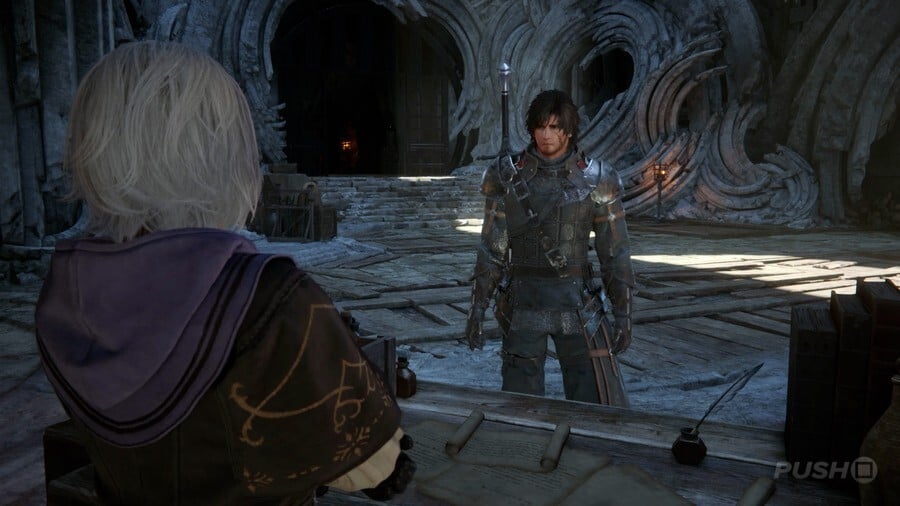
But then also you had that negative feedback, that the story wasn't complete, that they promised a lot of stuff with the DLC, but they didn't come through on the DLC. And so when going into development on Final Fantasy 16, we don't want to make those same mistakes. We want to go into it getting something that the players expect and will enjoy. And that would start with that full, complete experience, a full story, a full game, from beginning to end on the day of launch. And that's kind of where we started.
I think there are many iconic elements of Final Fantasy, but there has never been a Final Fantasy that was so focused on summoning monsters. The current technology, the current graphics, and the situation of moving the summoning monster with your own hands are definitely going to have a huge impact. And so my core idea for this project was I wanted to focus on the summons. I wanted to take this idea of the summons, something that has appeared in all of the Final Fantasies, but hasn't been the main focus of any of those games, and make that the main focus of this game.
And then not only make it the main focus of that game, but then use the cutting-edge graphics, the modern tech, to create something that players not only simply summon, like a magic spell like they had in the past, but actually take control of with their own hands. Because in this game it's not someone summoning the Eikons, the Eikons are actually the Dominants who have the Eikons inside them and become the Eikons. All of a sudden you can now tell the story of these Eikons because they're actual characters and they have their arcs and they have their stories. And then once we had that seed, then it's deciding on what type of game it is. And that's when it's like, okay, rather than doing turn-based, let's go with that action-type of system and having that based off of the things that we can.
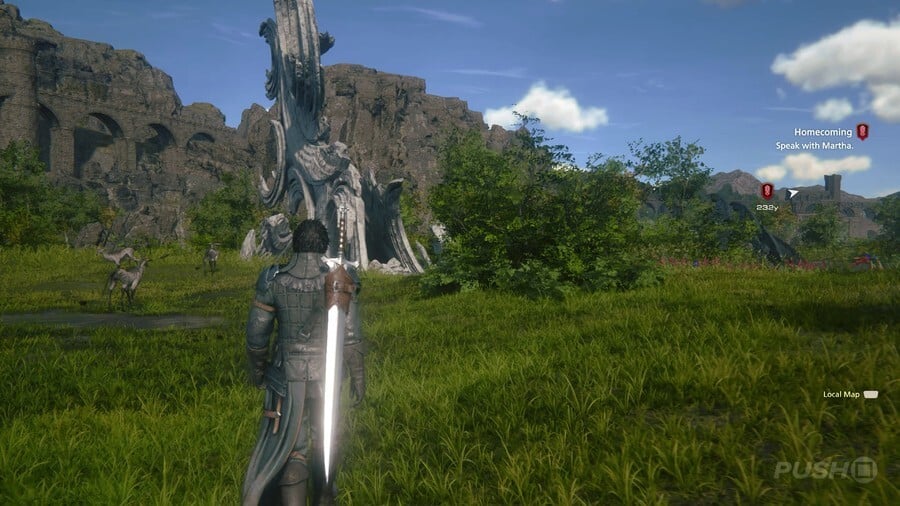
That's a great answer, thank you. So, my next question is, Final Fantasy 16, and specifically its script, feels a lot more Western than previous instalments. Would you agree with that, and if so, was it a conscious decision that you made during development, and can you elaborate on why you went down that path?
Yoshida: The concept of the project was to have gamers from all over the world enjoy the game. In the traditional way of making Final Fantasy, the idea was to have the Japanese language first and translate it. But with Final Fantasy 16, while the original script was written in Japanese first, we then translated it into English, but we didn't just translate it, we localised it and rewrote it, and tried to make it something that had a very Western feel to it. And then we took that back to the Japanese team, and then they would adjust the Japanese to make it closer to the changes that we had made in English.
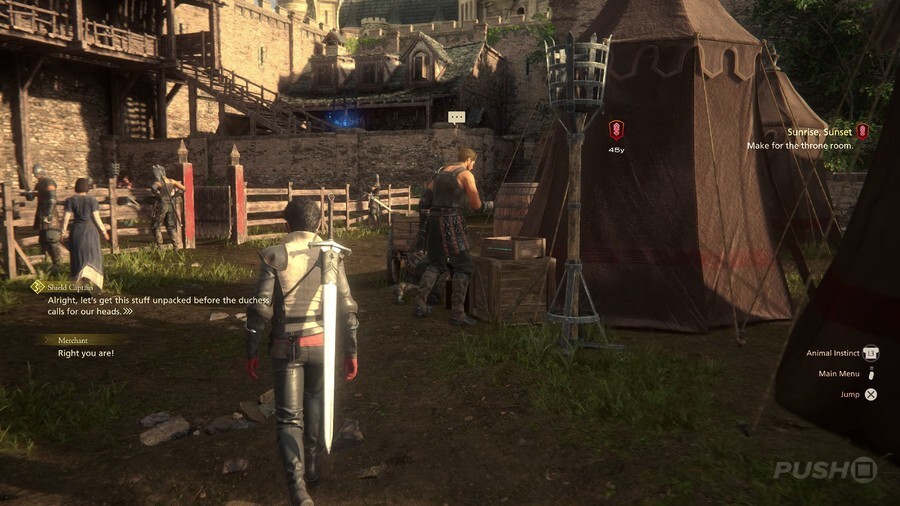
Then we recorded all of the lines in English first, did facial capture in English with the English voice actors, using voice actors here in London to give it a very real feel.
So an interesting thing for us in English is, where did the name Clive come from?
Yoshida: The sound! That was probably the decision. I think it was the sound that determined it. When we first saw it, we thought, well, maybe it's good. So, what it came down to was the main scenario writer, Kazutoyo Maehiro, our creative director, basically decided on all of the main names first. And he decided them pretty much based on how he liked the sound of them. And that was it!
I didn't really feel anything about it, and so that's how it got chosen. You know, it's something that, we had that seed, and then you build the game based off of that name, and the name takes on different meanings, and it takes on more weight as his story is told and is developed. And so, yes, at the beginning, we're just kind of like, oh yeah, Clive is a great name, whatever. But now, after having worked on it and having created the story for Clive, now it's like Clive is the only name it could have ever been.
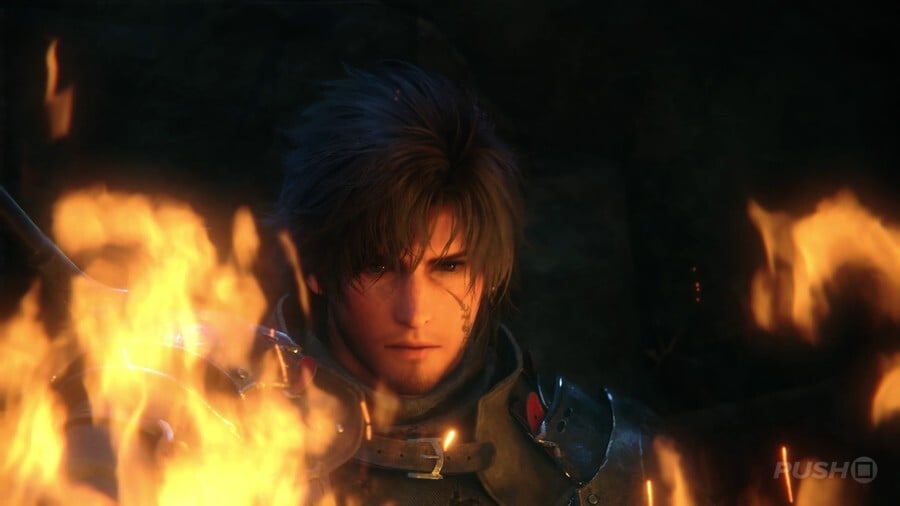
So from an outside perspective, as someone who's covered a lot of Final Fantasy development cycles, it's felt to me like the route to this game's release has been much smoother than previous ones. Do you feel that development has been steadier on your end? And why do you think that is, if it has?
Hiroshi Minagawa: I've worked on a lot of titles in the past and none of them have been smooth and the same can be said for Final Fantasy 16. So, again, it just depends on the project.
They're never smooth, but there are stages in each project that are gonna be the most taxing. And for this project, again, because it wasn't a turn-based, command-based RPG, you have this system that relies on being very smooth and fluid and everything working quickly, but, again, because the game wasn't optimised until right up until the end, you're playing this game and everything's moving really slow, and you're trying to figure out a graphical tone to the project, but the performance is not that good, and so you're worried if it's going to work when things get up to speed. It really wasn't until the last two months before master that the game finally got to a point where it's like, "Oh, this is what it's going to be finally and now we can finally start seeing if things are going to work out."
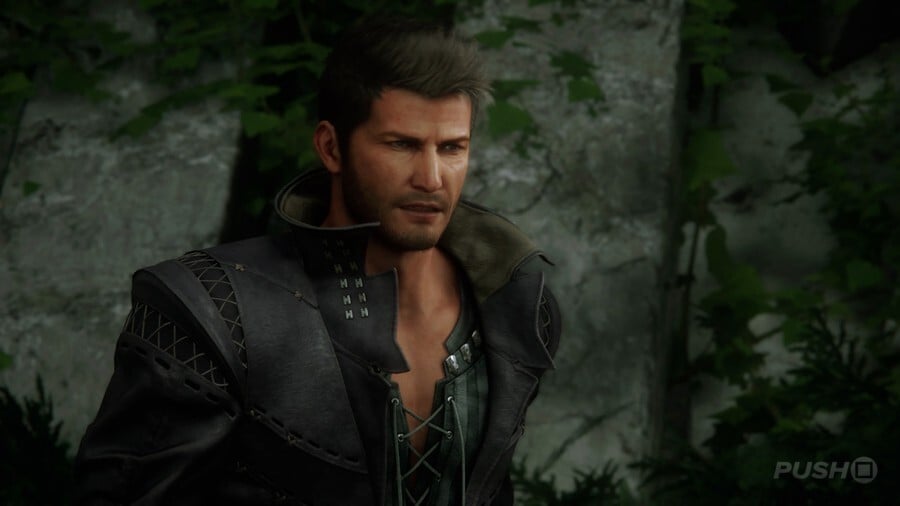
It was really difficult to get to the final two months. It was like there was this one very, very important stage that was just really, really slow and heavy for a long time, up until literally two months before I mastered it, and that was my biggest worry. I didn't know if things were going to work.
Yoshida: And going back to that original thing where you said that from your perspective it looks like it's gone very smoothly, we'll look at the media reports and we'll look at people on social media and everyone's saying, "Yeah, it looks like the progress is going really well!"
And so we understand it seems that way to a lot of people. But I mean, it turns out that this is actually one thing that I really focused on, especially as a producer and thinking about how to promote the game, is that I didn't want to release a lot of info too early.
Minagawa: I talked a little bit in the past about how with each game, the stages where I'm the most worried are different. Working on Final Fantasy 12, that stage was basically we didn't know where the story was gonna go until very late in development. And so not being able to know how to create something because we didn't have a story to follow, that was the toughest for us.
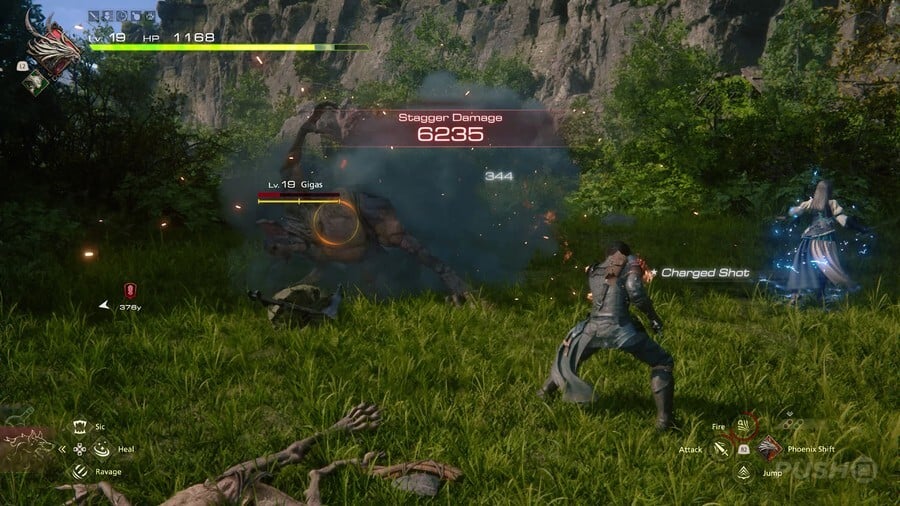
On Final Fantasy 16, though, the story was decided – one of the first things decided. And because that was locked in, it was so much easier.
Yoshida: We realised that was something that was gonna help the development in full to have this locked in so you can do the rest of it.
Can you talk a little bit about some of the games that have maybe inspired or influenced the development of Final Fantasy 16? So personally I see a little bit of God of War and The Witcher, and I'm curious if they were references for you while you were developing it.
Yoshida: I love the two games, especially God of War. The craziness of the boss battles in God of War, when it was a more traditional action game, is just... The game design is so different for each stage, and the boss is so unique, everything is made with power, and you can feel the power. So, while I personally also really like the most recent God of War games, I look back further to the original God of Wars, and especially the boss battles in those, how the boss battles are all crazy, they're all different designs for each, they're all unique, they're all over the top, and in getting inspiration from that and creating our Eikon versus Eikon battles to kind of have that same feel.
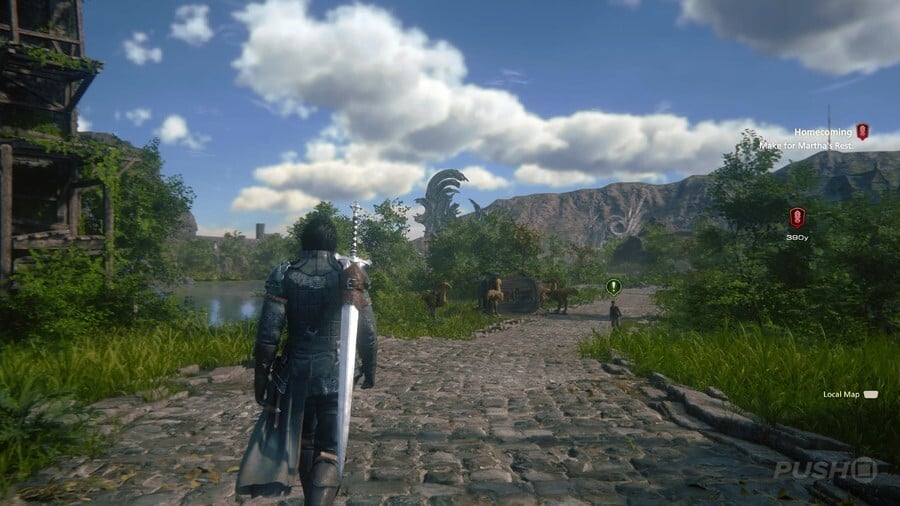
Minagawa: We really looked deeply at the God of War games, looking at all the leaves on the trees and comparing them to what we have to make sure what we have is hopefully better than what they have.
So my final question is, there's been a lot of debate online about what makes a Final Fantasy game a Final Fantasy game. Is it the story? Is it the characters? Is it the combat systems? I'm curious for you, what is Final Fantasy to you?
Minagawa: For me, when I am approached by a director or producer, on whatever Final Fantasy, and they tell us, "Okay, we're going to focus on this," I will take that and then hopefully try to get that and incorporate that into the visual design. On Final Fantasy 16, we knew right from the beginning that our main focus was going to be the story, it was going to be the narrative.
And so it was up to me to take that and make sure that the visual experience was going to enhance that. It happened to be that we decided to go in a direction that is very dark, kind of like a Game of Thrones. You have the dark fantasy, but based in reality. And in the end, I think that that is what makes a Final Fantasy feel like a Final Fantasy, is when you have visuals that can enhance and supplement that story perfectly.
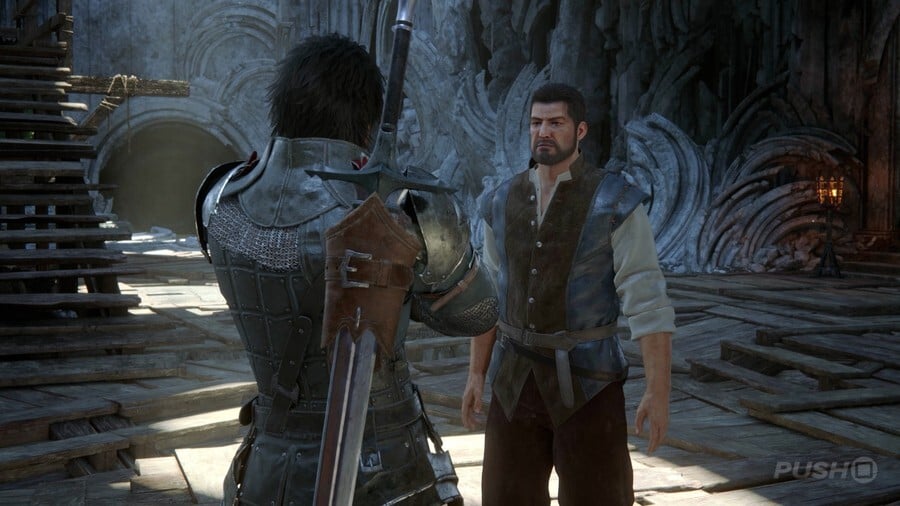
Koji Fox: I think that Final Fantasy, each story is unique, all the characters are different, all the worlds are different, but you still have those things that carry through the series. Things that you don't need to know to appreciate or to understand the story, so they're not going to be in the way for a new player, but for those players that have played the past games, they're going to be able to pick those up and they're going to be able to trigger emotions that they had in the past games and something that's going to be in the newer games. And so it's all about having those little bits from the past that call upon something that's in a different world and doesn't really pertain to this story, but it's gonna give you the feels.
Yoshida: My answer is simple. You need to have the best story, you need to have the best graphics, you need to have the best battle system, you need to have a lot of content, you need to have the Chocobos, you need to have Moogles, you need to have great sound, and that makes a Final Fantasy. And if you're missing even one of them, the fans will hate you forever.
Sounds accurate!
If you don't get all seven of them, everyone will get mad. And so, yeah, some people think it's about the story, some people think it's about the battle system and the characters – they're all right! You need all of those things! Sure!
All right, brilliant. Thank you so much for your time.
This interview has been lightly edited for readability purposes. We'd like to extend our thanks to all of the Square Enix team, specifically Naoki Yoshida, Hiroshi Minagawa, and Koji Fox for their time.





Comments 20
I made some new friends!
Could anyone explain what the obsession is with Clive being an odd choice for the protagonist's name? I see it brought up by PushSquare specifically plenty of times, but as far as I can tell it's just another name of British origin among many. Uncommon apparently, but that by itself ought to be not a negative, but a positive for a fictional character in terms of standing out.
@Gaia093 It's just a difficult name to associate with the hero of a Final Fantasy game. Sounds more like someone you'd expect to call you about your car insurance policy.
@get2sammyb In fairness, pretty much every quality of this game is difficult to square with what the franchise used to be like. Given the more grimdark, heavily European-inspired vibe and setting, Clive feels like it makes sense. The protagonist of this having a name like Noctis, Cloud, or Squall would just be weird, IMO.
@Gaia093 It’s a specifically boring name. Like being called Keith. The sort of name that a character from a 70s sitcom would be called. Or a slightly overweight police officer from a rural district.
It seems they learned from the development of past FF's and really took the feedback to heart and tried to not make past mistakes. I know a lot loved FFXV but to me as a die-hard FF fan, XV was the rock bottom of the franchise, and maybe one they needed. i first needed to really adjust to the setting XVI is in. But the more I see and read of it the more I'm looking forward to be playing it.
@Gaia093 Agreed. Maybe it's a British take because to me Clive sounds just fine. Maybe Clive is the British equivalent of "billy bob" here in the US? I dunno. Not sure why the hate.
"We really looked deeply at the God of War games, looking at all the leaves on the trees and comparing them to what we have"
This, right here, is everything that is wrong with modern AAA game development summarized in a single sentence.
As for YoshiP, he said a lot of things that lost me, and he said a lot of things that confuse me (his understanding of delivering what people "expect" from an entry of a series, but then delivering what he's delivering, etc.)
The only thing that piqued my interest is his (correct) opinion of classic GoW > GoW2018/R. The fact he recognizes that gives me hope. Though much as I think classic GoW are better games than new GoW, I still thing GoW is pure carp as an FF game, but at least it might be a fun game as long as you try to forget it wants to be an FF game.
Though him describing that they basically threw out the Japanese script and rewrote a new Japanese script based on a Western script shatters much hope. And/or gives me Forspoken vibes. Which is bad.
Still, if nothing else this interview at least elevated my opinion of YoshiP, he can recognize old GoW is better. The man gets a cookie, either way.
@Ralizah @get2sammyb Sammy's just hung up that they named a character after his uncle that worked at Codemasters.
It's a name that you don't hear in the US outside Arkansas though...
They should’ve given the protagonist a real Final Fantasy name, like Butz.
@nessisonett I guess I'll count myself lucky I'm not British (or from an English speaking country period), because Clive sounds just fine to me. So does Keith, actually. When I think of boring English names to use in videogames I think John, Jack, Peter, Thomas, Max and so on.
@KaijuKaiser Ooohhh.....I'd have asked the hard questions. Which is why they won't send me to a PR event they want to be invited back to.
@KaijuKaiser The problem is this STILL doesn't sound like an action RPG, it just sounds like an action game. Without the RPG. Which is a problem in an RPG series.
@Gaia093 Jack? That's just chaos.
I loved yoshidas answer to the last question if u don't have those 7 qualities they'll hate u forever couldn't be more true man I am so ready for this game 😆😆😆😆😆😆😆😊😆😆😆😆😆
He's clearly named after South Parks episode where Clive and Tweak are a gay couple due to the Japanese fad. A duh! Mhhhhhmm check please.
His name never bothered me at all, still looking forward to the game!
@get2sammyb I'm now actually loving the fact that they chose the name just because they liked saying Clive hahahaha i just now think of them shouting Clive around the office. Not knowing Clive from Insurance. Haahhaha brilliant.
@Gaia093 it's just because I've never heard anyone under 60 called that personally 😂
@Jedihillis at least its not Keith or Darren 😂
@get2sammyb agreed, although wasn't the protagonist on ff 4 called cecil,thats even worse 😂
Leave A Comment
Hold on there, you need to login to post a comment...